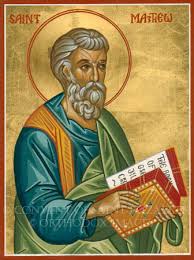
Matthew 6:11b "Give us this day our daily bread."
Luke 11:3 "Give us each day our daily bread."
Introduction: A lesson I learned from a spider
When Debi and I first got married, we lived in an upstairs two bedroom apartment. One day she and I were looking out the back window at the back yard. We both were feeling down due to challenging circumstances. We both prayed but found ourselves still struggling on the inside. As we both kept peering out that window, we noticed a little spider making its way between the outside screen and inside window pane.
The spider, though small, was bigger than the tiny screen holes. We reasoned that the spider had crawled in between the screen and window at an earlier time. As we watched closer, we noticed little tiny gnats flying in through the screen holes. Remarkably, those little gnats would get caught in the little spider's web. As soon as we witnessed this spectacle of the spider and the gnats, a rainbow appeared across the sky. Both my wife and I were reminded of God's promise to Noah (Genesis 9:13) that He would never again destroy the earth by a flood. Moreover, in seeing the spider, we realized that unless the gnats flew in through the screen, the spider would die. It had no way of getting out to fend for its food. The spider was completely at God's mercy to provide food (see Psalm 104:20-24).
My wife and I were taught a valuable lesson that day concerning God's provision. We learned that His promises are always in the background of every circumstance (see 2 Peter 1:3-4). Secondly, though He may place what we perceive as restrictions into our lives, the "restrictions" are actual "releases" to free one's faith to trust God rather than themselves.
Suggested reasons for the two renderings of the Lord's prayer
Whenever one reads the two versions of the Lord's prayer in Matthew 6:9-13 and Luke 11:2-4, the instructions from Jesus on prayer are given on two different occasions. As any good teacher will oft repeat a lesson or topic throughout the course of their teaching - so it is with our Lord. Although the two versions are similar, they contain distinctions.
The petition on requesting God's provision in Matthew 6:11b reads "give us this day, our daily bread". Luke 11:2 states the same petition in this way: "Give us each day our daily bread." Matthew's version had Jesus emphasizing provisions for today - right now. Luke's version deals with the distribution of God's provision for everyday into the future or for however long the need may be. The former addresses my request to God in meeting my immediate needs. The latter version of the prayer is requesting of God in meeting my needs for the long haul. Matthew's version is focused on the little picture of today. Luke's rendering is dealing with the bigger picture.
I find the priority of these versions remarkable. Matthew's rendering of "gives us this day our daily bread" represents Jesus teaching this lesson in the earlier part of His ministry. He is preaching his first major sermon. When He arrives on this part of the prayer, the challenge to the believer is whether or not to trust God for today.
Until I can learn the lesson of trusting God for today, I won't be ready for how much He wants to give to me tomorrow. Luke's version reminds us that each day is going require differing amounts and types of provision. Jeremiah writes in Lamentations 3:21-24 -
"This I recall to my mind,
Therefore I have hope.
22 The Lord’s lovingkindnesses indeed never cease,
For His compassions never fail.
23 They are new every morning;
Great is Your faithfulness.
24 “The Lord is my portion,” says my soul, “Therefore I have hope in Him.”
Jesus reminds us in Matthew 6:34 “So do not worry about tomorrow; for tomorrow will care for itself. Each day has enough trouble of its own."
Thoughts for application: three types of provision
In as much as Jesus uses the term "bread" in His instruction on prayer to refer to request for physical needs, one must not restrict God's provision to the physical realm. Certainly the physical realm is where we begin when considering God's provision (see Philippians 4:19). Physical provision of God covers food (Deuteronomy 8:14-15) and finances (Malachi 3:6-10; Luke 6:38; Philippians 4:19). It is normally in this first sort of provision that many people conceive of God's provision.
However, trusting God to provide every need addresses two other areas that are pointed to by the physical realm. The second area has to do with one's emotional needs. Philippians 4:6-7 promises the provision of God's "peace that surpasses all understanding". How often I have found that before the physical provision arrives, God's peace arrives ahead of it.
Yet, there is one more sort of provision to which physical and emotional provisions point - namely spiritual provisions. Unless our spiritual provisions are met in Christ, physical and emotional provisions will not long satisfy. Whenever Jesus instructs His disciples on prayer in these verses, notice how little space He devotes to petitioning for physical needs - i.e. "daily bread". Jesus devotes the first quarter to one-third of the prayer to the praise of the Heavenly Father. Then, the latter part of the prayer is devoted to protection from temptation and the evil one.
Closing thoughts
As we pray for God's provision, the drift of our prayer life ought to invert the typical order people follow in terms of their priorities. Rather than dwelling only on physical needs or perhaps graduating to emotional needs and going no further, the reversing of such order ought to follow. Imagine what happens when an individual or church begins with the spiritual need - a need for closer fellowship with God and deeper acquaintance with scripture. As the spiritual needs are prioritized, the emotional and physical needs are more effectively met. Undoubtedly, human experience drives one from dwelling only on the physical to consideration of one's emotional plight and then spiritual need. Traumatic events will call of course for addressing immediate physical and emotional needs - since such needs can lead one to ponder on the state of their soul. Yet, in the normal courses of one's Christian spiritual life, the order should follow the course of spiritual-->emotional-->physical. Consequently, such an approach prioritizes God, then others and lastly - oneself. As we can see, God's provision covers all the bases. We only need to trust, wait and look to Him who knows what we need, when we need it.









